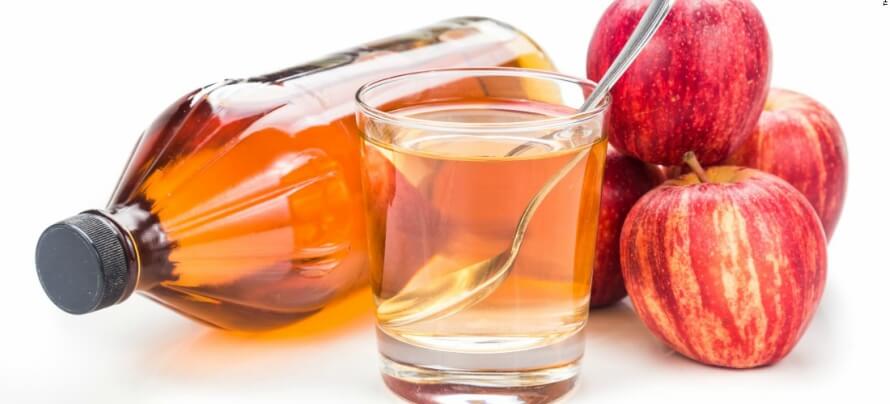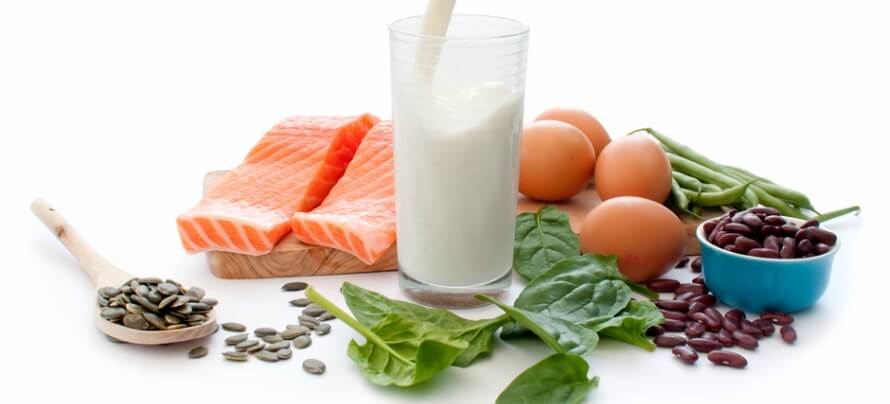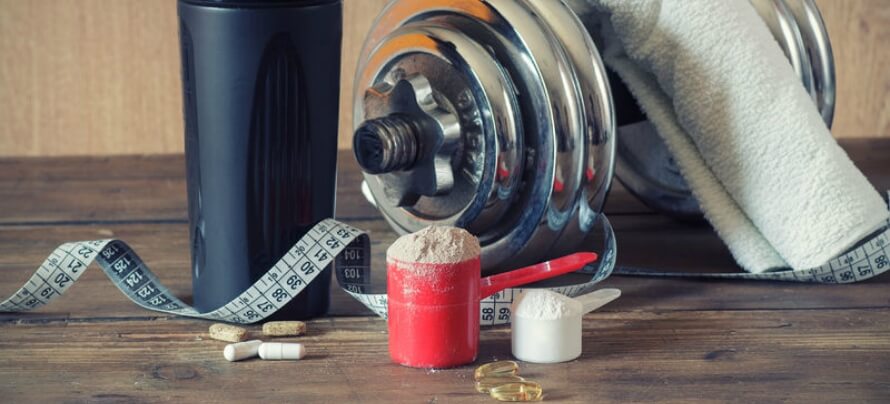Key Takeaways
- Apple cider vinegar doesn’t burn body fat or reduce fat gain.
- Apple cider vinegar can reduce blood sugar levels and decrease appetite, but the effects are negligible.
- The best way to accelerate weight loss is restricting caloric intake, eating plenty of protein, doing resistance training and HIIT, and taking the right fat loss supplements.
If you’re trying to lose weight faster and are looking for every advantage you can get, I understand.
Getting your calories and macros right is much more than half the battle, of course, but if you can speed up your progress with safe options like fat burners, interval training, or intermittent fasting, why not give them a go?
And that’s why many people take to drinking apple cider vinegar.
According to some experts, just a few tablespoons per day will help you safely lose weight faster by decreasing your appetite, increasing fat burning, and reducing fat storage.
Unfortunately, science says otherwise.
As you’ll see in this article, research shows that apple cider vinegar can slightly reduce your appetite, but not enough to help you meaningfully reduce your caloric intake (and thus accelerate weight loss), and can’t directly burn body fat or otherwise positively influence fat metabolism.
By the end of this article, you’re going to know what apple cider vinegar is, why it’s often claimed to increase weight loss, and what the scientific literature has actually demonstrated.
Let’s get to it.
- What Is Apple Cider Vinegar?
- Can Apple Cider Vinegar Help You Lose Weight?
- What Can Help You Lose Weight Faster?
- The Bottom Line on Apple Cider Vinegar
Table of Contents
+What Is Apple Cider Vinegar?

Apple cider vinegar is exactly what it sounds like: vinegar made from fermented apples.
(And in case you’re not familiar with fermentation, it’s a process whereby the sugars in organic matter are converted into alcohol.)
To make apple cider vinegar, apple chunks, water, and sugar are combined and left to ferment for several weeks. The apple chunks are then removed, and the liquid is filtered, pasteurized, and bottled (sometimes after another round of fermentation).
As the apples ferment, several pungent compounds are produced including acetic acid, which gives vinegar its sour taste.
Can Apple Cider Vinegar Help You Lose Weight?
According to some people, apple cider vinegar is something of a wonder tonic, capable of improving many facets of your health and body composition as well as warding off various types of disease and dysfunction.
Weight loss is one of the big benefits used to sell “ACV,” and this is supposedly accomplished in various ways, including directly burning body fat, reducing appetite, stabilizing blood sugar levels, and increasing insulin sensitivity.
How true are these claims, though?
Can Apple Cider Vinegar Burn Body Fat?
There’s no scientific evidence that apple cider vinegar can burn body fat.
One study found that when rats were fed a high-fat diet, including apple cider vinegar helped reduce fat gain, but rats aren’t tiny people and these effects have never been demonstrated in humans. It’s also worth noting that the rats were drinking the human equivalent of over two and a half cups of vinegar a day, which is about 20 times more than most people drink to lose weight faster.
Can Apple Cider Vinegar Reduce Appetite?
Research shows that ACV can indeed increase the feeling of fullness and thus discourage overeating, but when you look into the details, you’re quickly underwhelmed.
First, one of the reasons it can reduce appetite in some people is it simply makes them nauseous, and second, the effects are just too slight to matter in the long run.
That’s why this study conducted with 175 obese but otherwise healthy subjects found that after 12 weeks of drinking two tablespoons of apple cider vinegar every day, they lost a paltry 4 pounds on average.
To put these results in perspective, if they had followed a proper meal plan and walked an hour or two every day instead, they could have lost 15+ pounds over the same period.
(It’s also very possible that the weight loss observed had nothing to do with the vinegar whatsoever as diets were self-reported, which is a notoriously unreliable way to track caloric intake.)
Can Apple Cider Vinegar Help Control Your Blood Sugar?
Kind of, but the claim that this will help prevent excess fat storage is very fake news (or fake science, if you like).
To understand why, we need to review how your body processes carbohydrates that you eat.
Simply put, when you eat carbs, your blood sugar levels rise and your body releases insulin into your bloodstream to help shuttle the sugar molecules into your muscles and liver for use.
Health “gurus” love to blame this basic (and vital) physiological process for all kinds of woes, including weight gain, cravings, and even disease.
Thus, as research shows that combining ACV with a carbohydrate-rich meal can markedly reduce its effects on blood sugar levels, it’s claimed that it can also benefit your body composition.
There are several problems with this theory.
First, this effect only lasts a couple of hours, at which point blood sugar levels rise back to where you’d expect them to be after a high-carb meal. In other words, it doesn’t reduce the spike in blood sugar that follows a high-carb meal per se–it delays it.
(And in case you’re wondering, apple cider vinegar accomplishes this by slowing the rate at which food passes through your stomach. It’s worth noting that the same thing happens when you mix in other foods as well, including plain old dietary fat, fiber, and protein.)
Second, even if ACV did affect blood sugar levels as many people believe, it still wouldn’t help you lose weight faster because these effects don’t reduce hunger or cravings or increase energy expenditure or fat burning.
Does Apple Cider Vinegar Improve Insulin Sensitivity?
Research does show that apple cider vinegar can improve insulin sensitivity in people with prediabetes or diabetes, but these effects weren’t seen in healthy people.
Does that mean that it can help some people lose weight faster, then?
Unfortunately, no. To understand why, let’s start at the top: what is insulin sensitivity?
Insulin sensitivity refers to how well your body’s cells (and muscles, primarily) respond to the hormone insulin.
The more insulin sensitive your body’s cells are, the better they can absorb and use glucose (blood sugar). Conversely, the less sensitive they are (the more resistant they are to insulin’s signals), the longer glucose remains in your bloodstream, which can lead to fat storage and harm your health.
Now, as far as losing weight goes, studies show that losing weight improves insulin sensitivity, not the other way around.
In other words, insulin sensitivity is a side-effect of losing weight, not a driving factor so even if ACV could make your body more insulin sensitive, it won’t help you lose fat faster.
What Can Help You Lose Weight Faster?

People are always looking for the next fat loss “hack.”
Apple cider vinegar, detox teas, zero-carb diets, and the like seem worthwhile on paper, but they’re distractions from the things that really move the needle.
If you want to lose fat quickly, consistently, and efficiently, then here’s what you need to do:
1. Make sure you’re in a large enough calorie deficit.
Research clearly shows that the only way to achieve significant fat loss is to eat less energy than you burn.
Yes, calories in vs. calories out matters. A lot.
(The number one reason people stop losing weight is terribly simple: overeating.)
This is also why the obese people in that study you just learned about didn’t lose more weight, despite diligently gulping down apple cider vinegar–they were eating too damn much.
When you eat fewer calories than you burn, you’re in a “calorie deficit” because, well, you’re feeding your body fewer calories than it needs.
And if you want to lose stubborn fat as quickly as possible, you need to ensure you’re in a large enough deficit.
Specifically, I recommend that you eat around 25% fewer calories than you burn every day.
That is, a 25% calorie deficit.
This will help you lose fat at a rapid clip without ever feeling starved or deprived.
Want to know how to figure out your calories? Check out this article.
2. Make sure you’re eating enough protein.

If there’s one thing most weight loss “gurus” agree about, it’s that a high-protein diet is best.
And they’re right.
Studies show that eating enough protein…
- Keeps you fuller on fewer calories
- Prevents muscle loss
- Increases energy expenditure
- Improves muscle recovery and repair
The bottom line is this:
If you don’t eat protein, you’re going to have a rough time losing weight, and particularly with losing fat and not muscle.
So, what’s enough protein?
Research shows that somewhere between 0.8 and 1.2 grams of protein per pound of body weight per day is optimal.
If you’re very overweight (25%+ body fat in men and 30%+ in women), then this can be reduced to around 1 gram of protein per pound of fat-free mass per day.
Want to know more about how much protein you need to eat and why? Check out this article.
3. Do heavy compound resistance training.

Your goal shouldn’t be to merely “lose weight.”
It should be to improve your body composition.
And that means that we want your body to burn as much fat and as little muscle as possible. That’s how we’re going to make sure you get lean and muscular, not skinny fat.
Using a proper calorie deficit and eating enough protein help with this, but heavy compound resistance training is the real linchpin.
The best way to preserve (or even gain!) muscle while losing fat is to follow a resistance training program that emphasizes heavy weights and compound exercises.
The reason for this is simple: as far as muscle goes, you either “use it or lose it.”
In other words, if you don’t want to lose your muscle when you diet (and just in general, really), you need to use it, and studies show that resistance training is best.
Want to know how to build an effective resistance training program? Check out this article.
4. Do high-intensity interval training (HIIT)
HIIT is a form of cardio that involves short, maximum effort sprint workouts.
And it’s very good for burning fat.
Specifically, research shows that 25 minutes of HIIT training burns as much fat as 60 minutes of traditional cardio, and other studies have demonstrated similar findings.
It accomplishes this in several ways, including…
- Increasing metabolic rate for up to 24 hours.
- Improving insulin sensitivity in your muscles.
- Increasing your muscle’s ability to burn fat for fuel.
- Decreasing appetite.
It’s also better for preserving muscle than regular low-intensity cardio, mainly because you don’t have to do nearly as much to keep the needle moving.
Want to know how to get the most out of your HIIT workouts? Check out this article.
5. Take the right fat loss supplements.

The best supplements to boost fat loss are:
- Caffeine: 3-to-6 mg of caffeine per kilogram of body weight per day increases metabolic rate and helps you train harder while dieting.
- Yohimbine: 0.1-to-0.2 milligrams of yohimbine per kilogram of body weight before fasted training enhances fat loss.
- Fat Burner: Effective fat burners contain ingredients that boost the number of calories you burn and reduce hunger and cravings, making weight loss more straightforward.
(And if you’d like to know exactly what other supplements you should take to reach any and all of your fitness goals, take the Legion Supplement Finder Quiz.)
The Bottom Line on Apple Cider Vinegar
Apple cider vinegar isn’t going to help you lose weight in any significant way or amount.
It doesn’t burn body fat, and although it may help slightly reduce your average daily caloric intake, the effects will be negligible. The same goes for its blood sugar and insulin sensitivity effects: marginal and meaningless in the context of weight loss.
The good news is there are several strategies that are scientifically proven to help you lose fat (and not muscle!) faster:
- Make sure you’re in a large enough calorie deficit.
- Make sure you’re eating enough protein.
- Do heavy compound resistance training.
- Do high-intensity interval training (HIIT).
- Take the right fat loss supplements.
Implement these strategies, and you’ll lose weight.
I guarantee it.
What’s your take on apple cider vinegar? Have anything else to share? Let me know in the comments below!
Scientific References +
- SJ, S., HG, P., SC, K., PL, K., H, M., & GR, K. (2011). Effects of p-synephrine alone and in combination with selected bioflavonoids on resting metabolism, blood pressure, heart rate and self-reported mood changes. International Journal of Medical Sciences, 8(4), 295–301. https://doi.org/10.7150/IJMS.8.295
- S, H., KR, F., G, C., N, L., S, P.-C., & DB, A. (2006). Citrus aurantium and synephrine alkaloids in the treatment of overweight and obesity: an update. Obesity Reviews : An Official Journal of the International Association for the Study of Obesity, 7(1), 79–88. https://doi.org/10.1111/J.1467-789X.2006.00195.X
- J, G., LC, G., S, N., O, S., CB, D., S, K., H, Ø., E, T., & N, M. (2007). Effects of a 3-day fast on regional lipid and glucose metabolism in human skeletal muscle and adipose tissue. Acta Physiologica (Oxford, England), 191(3), 205–216. https://doi.org/10.1111/J.1748-1716.2007.01740.X
- W, D., A, M., E, M., K, P., & P, H. (2007). Effects of post-absorptive and postprandial exercise on glucoregulation in metabolic syndrome. Obesity (Silver Spring, Md.), 15(3), 704–711. https://doi.org/10.1038/OBY.2007.548
- SM, O. (2006). Yohimbine: the effects on body composition and exercise performance in soccer players. Research in Sports Medicine (Print), 14(4), 289–299. https://doi.org/10.1080/15438620600987106
- TW, B., TJ, H., RJ, S., GO, J., DJ, H., JW, C., & MH, M. (2006). The acute effects of a caffeine-containing supplement on strength, muscular endurance, and anaerobic capabilities. Journal of Strength and Conditioning Research, 20(3), 506–510. https://doi.org/10.1519/18285.1
- TA, A., RL, R., & K, F. (2008). Effect of caffeine ingestion on one-repetition maximum muscular strength. European Journal of Applied Physiology, 102(2), 127–132. https://doi.org/10.1007/S00421-007-0557-X
- A, A., S, T., S, C., P, H., L, B., & J, M. (1990). Caffeine: a double-blind, placebo-controlled study of its thermogenic, metabolic, and cardiovascular effects in healthy volunteers. The American Journal of Clinical Nutrition, 51(5), 759–767. https://doi.org/10.1093/AJCN/51.5.759
- SH, B. (2011). High-intensity intermittent exercise and fat loss. Journal of Obesity, 2011. https://doi.org/10.1155/2011/868305
- RE, M., TJ, H., TD, O., DH, P., & PW, L. (2011). Run sprint interval training improves aerobic performance but not maximal cardiac output. Medicine and Science in Sports and Exercise, 43(1), 115–122. https://doi.org/10.1249/MSS.0B013E3181E5EACD
- L, S., S, D., B, S., & G, H. (2013). Impact of different training modalities on anthropometric and metabolic characteristics in overweight/obese subjects: a systematic review and network meta-analysis. PloS One, 8(12). https://doi.org/10.1371/JOURNAL.PONE.0082853
- Phillips, S. M. (2014). A Brief Review of Higher Dietary Protein Diets in Weight Loss: A Focus on Athletes. Sports Medicine (Auckland, N.Z.), 44(Suppl 2), 149. https://doi.org/10.1007/S40279-014-0254-Y
- BJ, B., & DA, D. (2008). Benefits of high-protein weight loss diets: enough evidence for practice? Current Opinion in Endocrinology, Diabetes, and Obesity, 15(5), 416–421. https://doi.org/10.1097/MED.0B013E328308DC13
- T, K., M, K., T, F., S, U., & T, K. (2009). Vinegar intake reduces body weight, body fat mass, and serum triglyceride levels in obese Japanese subjects. Bioscience, Biotechnology, and Biochemistry, 73(8), 1837–1843. https://doi.org/10.1271/BBB.90231
- Hill, J. O., Wyatt, H. R., & Peters, J. C. (2012). Energy Balance and Obesity. Circulation, 126(1), 126. https://doi.org/10.1161/CIRCULATIONAHA.111.087213
- Hardy, O. T., Czech, M. P., & Corvera, S. (2012). What causes the insulin resistance underlying obesity? Current Opinion in Endocrinology, Diabetes, and Obesity, 19(2), 81. https://doi.org/10.1097/MED.0B013E3283514E13
- Schenk, S., Harber, M. P., Shrivastava, C. R., Burant, C. F., & Horowitz, J. F. (2009). Improved insulin sensitivity after weight loss and exercise training is mediated by a reduction in plasma fatty acid mobilization, not enhanced oxidative capacity. The Journal of Physiology, 587(Pt 20), 4949. https://doi.org/10.1113/JPHYSIOL.2009.175489
- SE, K., ME, C., & S, D. P. (2014). Pathophysiology and treatment of type 2 diabetes: perspectives on the past, present, and future. Lancet (London, England), 383(9922), 1068–1083. https://doi.org/10.1016/S0140-6736(13)62154-6
- Eckel, R. H., Kahn, S. E., Ferrannini, E., Goldfine, A. B., Nathan, D. M., Schwartz, M. W., Smith, R. J., & Smith, S. R. (2011). Consensus Statement: Obesity and Type 2 Diabetes: What Can Be Unified and What Needs to Be Individualized? The Journal of Clinical Endocrinology and Metabolism, 96(6), 1654. https://doi.org/10.1210/JC.2011-0585
- Panetta, C. J., Menk, J. S., Jonk, Y. C., Brown, A. J., Powers, M. A., & Shapiro, A. C. (2010). Prospective Randomized Clinical Trial Evaluating the Impact of Vinegar on High Density Lipoprotein. Journal of the American Dietetic Association, 110(9), A87. https://doi.org/10.1016/J.JADA.2010.06.321
- CS, J., CM, K., & AJ, B. (2004). Vinegar improves insulin sensitivity to a high-carbohydrate meal in subjects with insulin resistance or type 2 diabetes. Diabetes Care, 27(1), 281–282. https://doi.org/10.2337/DIACARE.27.1.281
- B, S., AK, P., M, H., K, J.-C., B, W., F, de C., H, L., & SM, S. (2016). Glycemic increase induced by intravenous glucose infusion fails to affect hunger, appetite, or satiety following breakfast in healthy men. Appetite, 105, 562–566. https://doi.org/10.1016/J.APPET.2016.06.032
- A, R. (2002). Should obese patients be counselled to follow a low-glycaemic index diet? No. Obesity Reviews : An Official Journal of the International Association for the Study of Obesity, 3(4), 245–256. https://doi.org/10.1046/J.1467-789X.2002.00080.X
- Hlebowicz, J., Darwiche, G., Björgell, O., & Almér, L.-O. (2007). Effect of apple cider vinegar on delayed gastric emptying in patients with type 1 diabetes mellitus: a pilot study. BMC Gastroenterology, 7, 46. https://doi.org/10.1186/1471-230X-7-46
- F Brighenti, G Castellani, L Benini, M C Casiraghi, E Leopardi, R Crovetti, & G Testolin. (n.d.). Effect of neutralized and native vinegar on blood glucose and acetate responses to a mixed meal in healthy subjects - PubMed. Retrieved September 27, 2021, from https://pubmed.ncbi.nlm.nih.gov/7796781/
- AF, S., LS, F., JA, T., SI, K., C, B., ML, N., FE, T., N, P., PM, G., V, T., J, R., & SM, K.-S. (2015). Addressing Current Criticism Regarding the Value of Self-Report Dietary Data. The Journal of Nutrition, 145(12), 2639–2645. https://doi.org/10.3945/JN.115.219634
- T, K., M, K., T, F., S, U., & T, K. (2009). Vinegar intake reduces body weight, body fat mass, and serum triglyceride levels in obese Japanese subjects. Bioscience, Biotechnology, and Biochemistry, 73(8), 1837–1843. https://doi.org/10.1271/BBB.90231
- J, D., GS, F., R, M., J, Y., & MD, R. (2014). Influence of the tolerability of vinegar as an oral source of short-chain fatty acids on appetite control and food intake. International Journal of Obesity (2005), 38(5), 675–681. https://doi.org/10.1038/IJO.2013.157
- E, O., Y, G., L, P., & I, B. (2005). Vinegar supplementation lowers glucose and insulin responses and increases satiety after a bread meal in healthy subjects. European Journal of Clinical Nutrition, 59(9), 983–988. https://doi.org/10.1038/SJ.EJCN.1602197
- Martić-Kehl, M. I., Schibli, R., & Schubiger, P. A. (2012). Can animal data predict human outcome? Problems and pitfalls of translational animal research. European Journal of Nuclear Medicine and Molecular Imaging, 39(9), 1492. https://doi.org/10.1007/S00259-012-2175-Z
- H, B., H, K., O, K., & D, S. (2016). [Anti-obesogenic effect of apple cider vinegar in rats subjected to a high fat diet]. Annales de Cardiologie et d’angeiologie, 65(3), 208–213. https://doi.org/10.1016/J.ANCARD.2016.04.004










